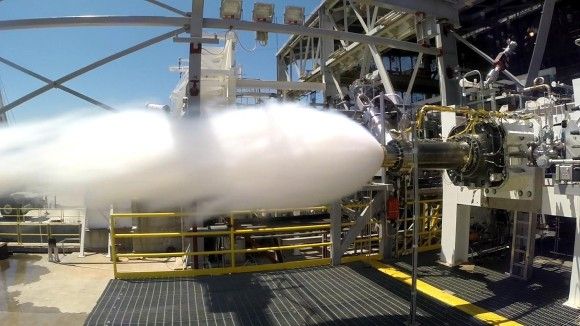Germany Wants to Arm the Bundeswehr
Chief of the Bundeswehr’s Association stated that Germany needs to improve its defensive capabilities in the light of the Russian threat – as we can read it in Frankfurter Allgemeine Zeitung. On the other hand, US Army Europe Commander, General Ben Hodges, stated in his interview for The Wall Street Journal, that Russia is currently getting ready for a war which could break out within 5 or 6 years.
According to Frankfurter Allgemeine Zeitung, head of the Bundeswehr’s Association stressed the fact that there is a great need of improving the German Army’s defensive capabilities. He stated that, in order to do it, the government should consider to increase the defence spending up to the level of at least a billion euros annually, starting from 2016 - “One who wants peace, must be prepared for a war” - as it has been stressed by André Wüstner during the security conference in Munich.
Wüstner also stressed the fact that in the eyes of many opinion makers, due to the fact that security has been provided for Germany during the pre-1989 period, the Germans are currently obliged to pay their debt back to NATO. He reminded everyone that since 1990 the public finances have been taken care of at the cost of the army. He pointed out the fact that due to the current international situation theatre is a need of increasing the procurement of armament and individual equipment for the Bundeswehr’s soldiers.
US Army Europe Commander, General Frederick Ben Hodges stated in his interview for The Wall Street Journal, that by modernizing and expanding the capabilities of the armed forces, Russia is preparing itself for a war, which may break out within five to six years. He also noted that this modernization does not mean that Moscow wants to attack some specific country. Hodges claims that the Russians are expecting to take part in an undefined conflict, which is to happen during the aforementioned period of time.
Hodges also reminded the Europeans that the US forces will not be capable of providing support in maintaining security in Europe without any support from the allies. This may be a basis for questions stated, regarding the European states, including Germany, which with its strong economy, and, even despite the Bundeswehr is not in its best shape, has well equipped armed forces. Bundeswehr, in the basic assumption, should be capable of operating within a wide scope of potential threats.
Germany – NATO’s debtor
In the light of the Ukrainian crisis, the Germans have decided to increase their defence budget, but only after it turned out that the Bundeswehr is in a very bad shape. As we all know, Germany also rejected the option of maintaining presence of large military forces in Mid-Eastern Europe. However, Berlin is going to significantly expand the scope of its cooperation with Warsaw. Germany is also going to participate in the rotational activities within the territory of the Baltic states.
Head of the Bundeswehr’s Association has correctly noted that there is a need of increasing the defence spending by the German government, which would make it possible to pay the dues to the allies, in a short- and in a long-run. It is also quite hard not to agree with the thesis, which stated that the Germans are the “debtors of NATO”, due to the protection from the Soviet Union carried out by the North Atlantic Treaty Organization during the Cold War.
German stance regarding the potential Russian threat still remains one of the greatest riddles of the European security system. There are some doubts, according to which Berlin may not accept potential actions in a proper scale and at the right moment within the scope of the allied defence system, particularly in the light of the detrimental changes within the German political sphere. Operational capabilities of the Bundeswehr are just another great question.
On the other hand, the public debate in Germany, which is finally covering the issue of the way of and the scope of paying the debt owed to the allies, should a threat, also a Russian threat, to the NATO states be present, is a good symptom. The initial effects of that discussion included nominal increase of the defence spending and expanded scope of military cooperation with Poland.
We still do not know whether the German authorities will be able to implement some measures regarding expansion of the military capabilities, considering the character of the threat and profile of the security environment. We shall reconsider e.g. the limited defensive capabilities of the Baltic states, as well as US and allied involvement in several regions of the world. Lastly, we should also remember about the issue noted by General Hodges – rapid expansion of the Russian defence spending, which is being carried out simultaneously with modernization of the Russian Armed Forces by the Kremlin.


WIDEO: Defence24 Days 2025: Premier Defence & Security Conference in CEE